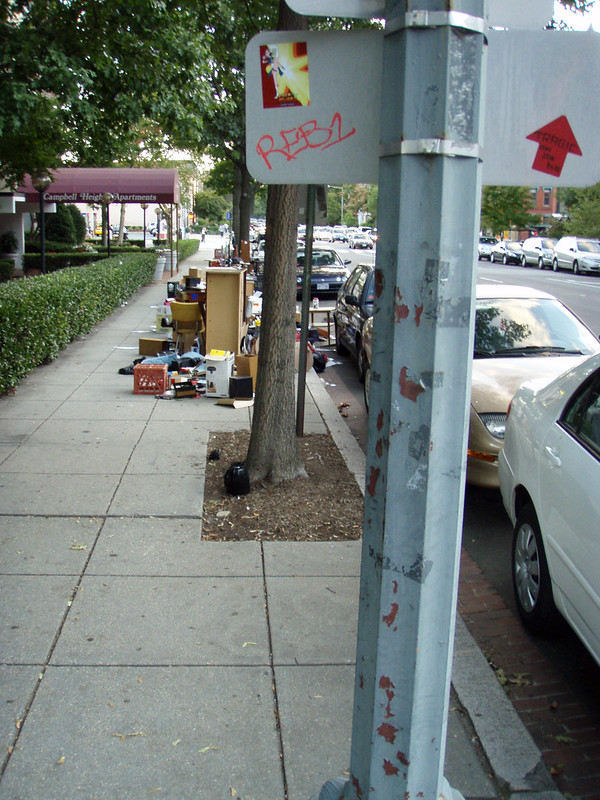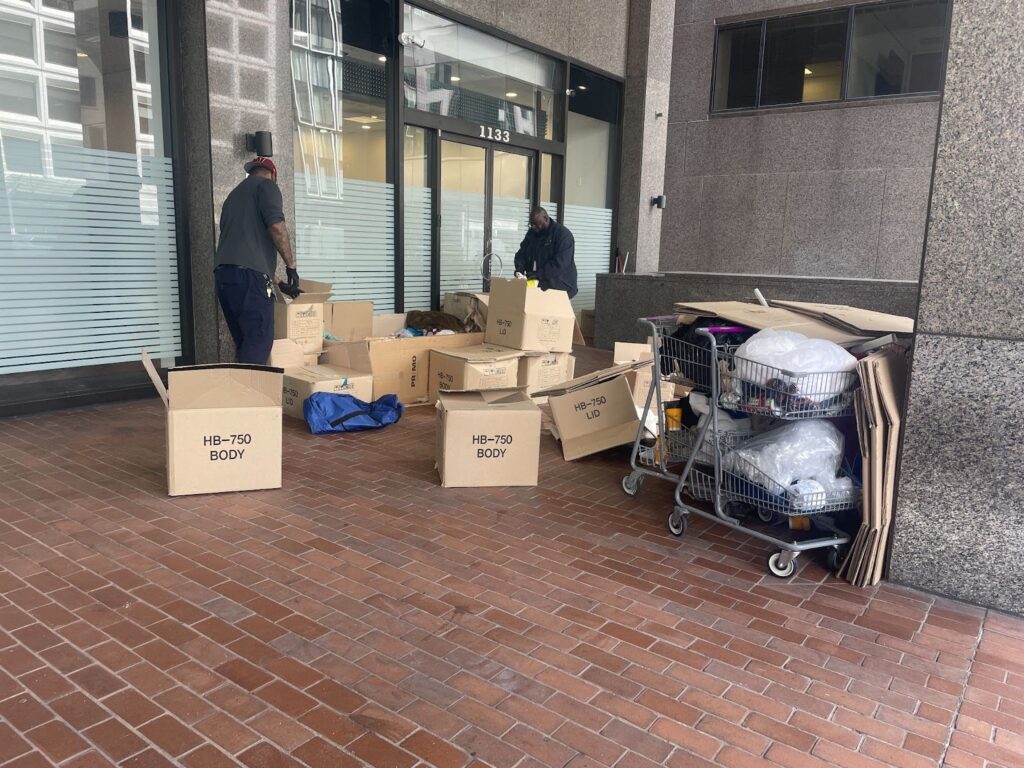It’s 22 degrees outside after New Year’s in Washington, D.C. There’s no snow, but it’s still frigid. Usually the alcoholics are the ones who freeze to death on nights like this. Seventy-four homeless people in Washington D.C. died in 2020. Nobody wants to live outside in that kind of weather, but sometimes that’s what happens. What do you do when you become homeless? And where do you put your stuff?
First order of business: Stay where you are, as long as you can, as long as it’s safe. If possible, the city wants you to stay in your place, and there are additional protections during the pandemic to help you do so. In most circumstances, you cannot be evicted from your home until 60 days after Mayor Muriel Bowser declares an end to the public health state of emergency. Landlords are also not allowed to raise rents or charge late fees during that time. See: oag.dc.gov/blog/know-your-rights-tenants-and-covid-19.
Even when the pandemic subsides, the city can still help. As soon as you know you can’t pay rent, call the Office of the Tenant Advocate (OTA.dc.gov). Staff there can tell you about your rights and responsibilities as a tenant. The Department of Human Services (DHS.dc.gov) has programs to help you stay in your home, and to help with back rent or mortgage payments. The Department of Behavioral Health’s crisis line is available around the clock for talk therapy, counseling, and sometimes antidepressants. And when needed, call 202-399-7093 or “311” for a ride to a shelter.
During the COVID-19 pandemic, the shelter hotline is acting as a navigator through D.C. social services.
Go to D.C.’s coronavirus website for the latest mandates and additional help: coronavirus.dc.gov/page/stay-home. Look under “View Operating Status by Agency” for information on how to contact an agency and complete applications for various programs. Because there’s so much uncertainty, keep checking back with coronavirus.dc.gov/gethelp, or coronavirus.dc.gov/rent for the latest updates and resources.
I’ve had the experience of being both homeless in my early 20s, and of working with people sleeping on the streets over 15 years as a mental health and social work professional. The District has a wealth of resources to help you cope during this pandemic. Arm yourself with information. It’s extremely difficult to climb out of homelessness without help. Especially ask for help before you become homeless, and try to negotiate an arrangement with your landlord.
Still, as soon as you know you can’t pay rent, start packing. Even if you receive rental assistance, what are you going to do when that subsidy runs out? It’s horrible becoming homeless and losing all your stuff, but if you pack now you have more control. And here’s the most important thing: Pack as if you’re going on a two-week trip, with only the essentials. When you’re homeless, you have to carry all your bags everywhere. There are no safe places to store your belongings, and some shelters let you bring in only one large bag. Plus, if you move around a lot, you’re going to lose things. It happens to all of us when we travel. You forget the phone charger, your toothbrush, a favorite jacket. It can be gut-wrenching! If you lighten your load, the experience of homelessness will be less exhausting.
But what do you do with the belongings you can’t carry? The easiest way to downsize your stuff is to have a potlatch in your home, after you’ve packed. Invite friends to bring a dish for dinner, and during the party, they browse around and take what they want. Two days later, invite all your neighbors to take what they want. Whatever is left over goes to the dumpster.
Take only what you can carry, usually three bags. A suitcase on wheels will carry a few clothes. Load your backpack with grooming items, a few cosmetics and tampons, and a phone charger. And take a shoulder bag with important papers, documents, notebook and pen. Keep your money, ATM/credit/EBT card, Social Security card, and birth certificate in your fanny pack, and your identification with your bus pass in a bus pass holder.
Make copies of your passport, diplomas, children’s immunization records and documents for school registration, and keep the originals in your bank’s security deposit box, or in a file at your case manager’s office. Keep these papers in no more than two different places. If you store things in too many different places, you forget where you stored them.
Then, you’re set to go!
Housing is a right, not a privilege, and there’s something wrong when the richest country in the world rewards greed by allowing landlords to jack up the cost of rent beyond what people can reasonably afford. The living wage for a single adult with no kids in Washington, D.C. is nearly $17. Even with D.C.’s minimum wage at $15, homelessness can still strike many people living on the edge at any time. If you’re in that position, know that there are people who can help, and ways to stay as safe as possible.
Paula Dyan is a former social worker who experienced homelessness for seven years.








